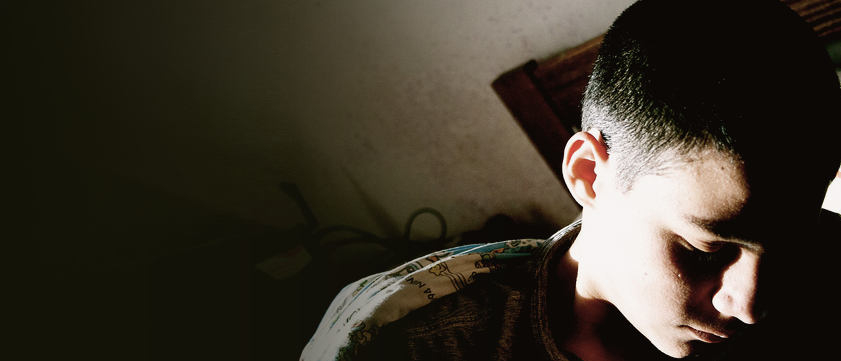Teen Depression

Just about every teenager has bouts of sadness, as the teen years can be somewhat difficult and confusing at times. Sad moods are one thing, but depression is another. Teenage depression is much more than sadness and can become a problem if not recognized or treated. It can certainly lead toward problems like substance abuse, self-mutilation, aggression, and suicide. As a parent, you probably think that your teen would not struggle with depression, but a high number of teens do, so it is important to recognize the signs.
Canadian Positive Psychology Network
Signs and symptoms
The teen years can be challenging, as teens have to face all sorts of pressures, hormones, challenges, and so on. Many teens wrestle with questions about who they are and how they fit in. They also can have issues with parents resulting in conflict. As teens embark on their journey to independence, they certainly hit some bumpy spots on the road, and sometimes they can enter a period of sadness. This state of sadness is common and usually does not pose a problem or last too long. It is when the sadness intensifies and lasts for weeks and months that the teen enters into a state of depression.
Here are the most common characteristics of teenage depression:
- Extreme sadness
- Lethargy
- Frequent crying
- Irritability
- Fatigue
- Problems getting to sleep or sleeping all the time
- Restlessness
- Hopelessness
- Suicidal thoughts
- Aggression
- Change in eating habits
How depression affects teens
If a teenager is struggling with depression, he or she will most likely have some problems in various areas of life. Though some teens may be able to keep problems to a minimum, others will act out their depression at home and/or at school.
At school the teen’s grades could drop, he may skip classes or days, be aggressive toward peers or teachers, or drop out. At home the teen can withdrawal from family and friends, be rebellious, act out, turn to alcohol or drugs to self-medicate, get addicted to the internet, and engage in high-risk behaviors like substance abuse addiction, unsafe sex, or crazy driving behaviors.
What to do if you think your teenager is suicidal
If your teen is talking about suicide or if you think he or she is suicidal for any reason, contact the National Suicide Prevention Lifeline at 1-800-273-TALK. You can also visit www.suicidepreventionlifeline.org. You will be given assistance as to what you can do to help your teenager.
Here are some signs that your teen may be suicidal:
- Kidding around about suicide
- Making comments like, “I feel like crashing into a tree,” or “I just wish I could disappear,” or “I’d be better off dead for sure
- Romanticizing dying
- Drawing pictures or writing stories about death or suicide
- Reckless behavior
- Getting a weapon or a bunch of pills
Talking with your teen
If you think that your teen is struggling with depression, sit down and have a talk with him or her right away. Tell him that you have been observing particular signs of depression. Let him know that you are concerned and that you want to help. Encourage him to own up to his depression if that be the case and give a good dose of support and unconditional love as he does.
Many teens will deny that they are struggling out of feeling ashamed or afraid. Let him know that you are there for them, that you understand about depression, and that there is help available. Be gentle with him and let him open up on his time. Do not judge or patronize him. He needs open arms.
There are various treatments available for depression. Call your doctor to set up an appointment for a depression screening or go directly to a psychologist. Encourage your teen
to go to therapy and be open and honest with the counselor. Oftentimes all it takes is a series of therapy sessions for your teen to minimize or eliminate the depression. He may simply need to learn some coping skills or vent many feelings to a person who can offer insight and advice.
Sometimes depression is due to a chemical imbalance, so there are anti-anxiety medications available for such cases. Your teen would have to visit a psychiatrist for an assessment and evaluation. Many teens do not need medication, but for those that do, it has been known to help minimize and alleviate many depressive symptoms.
Your teen can get help for depression. As a parent, you can play a part in that, so do your best to be alert to depressive signs and offer the help that you can.
